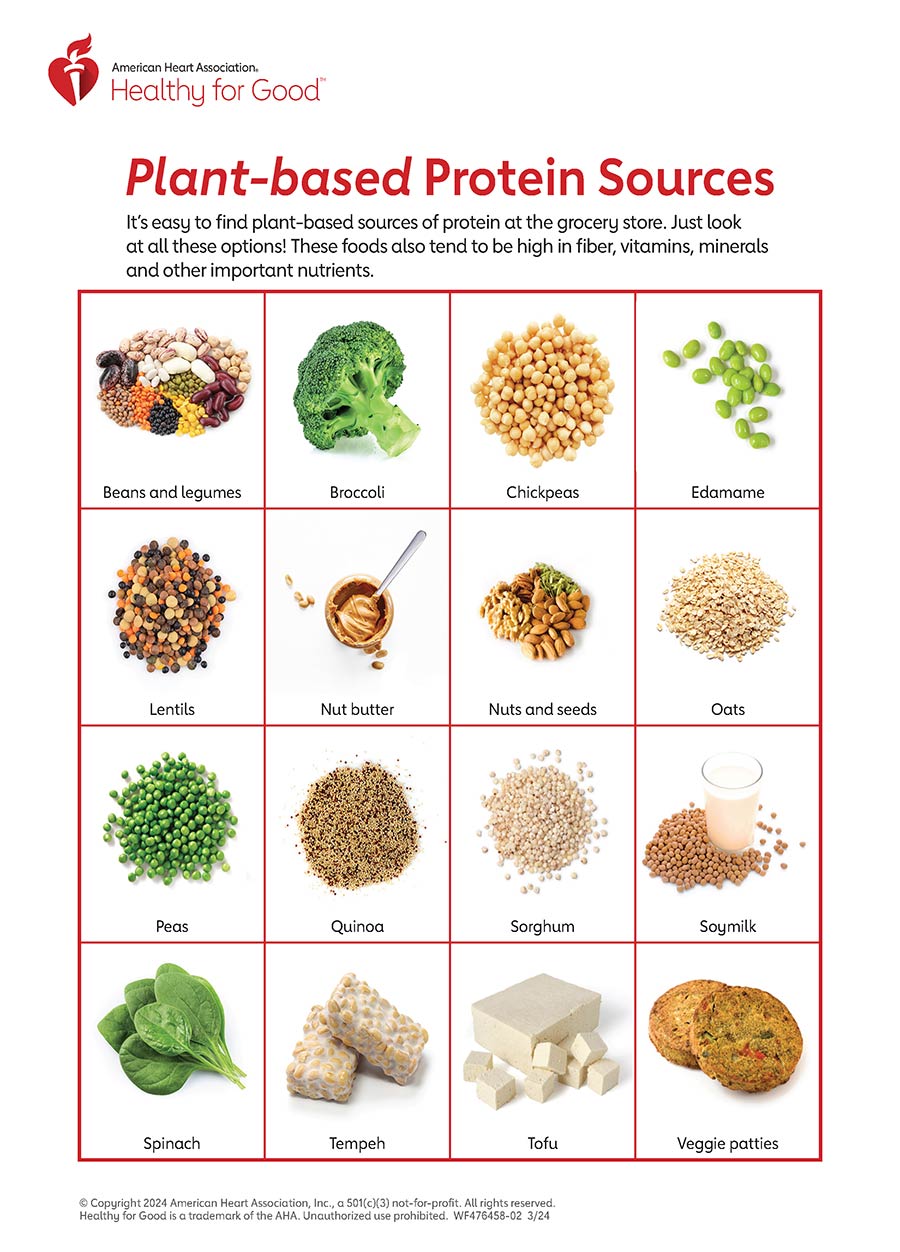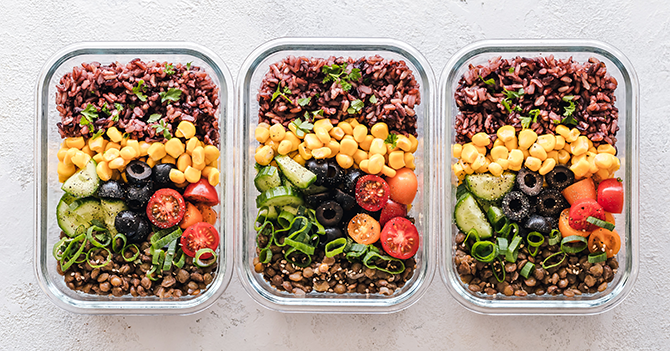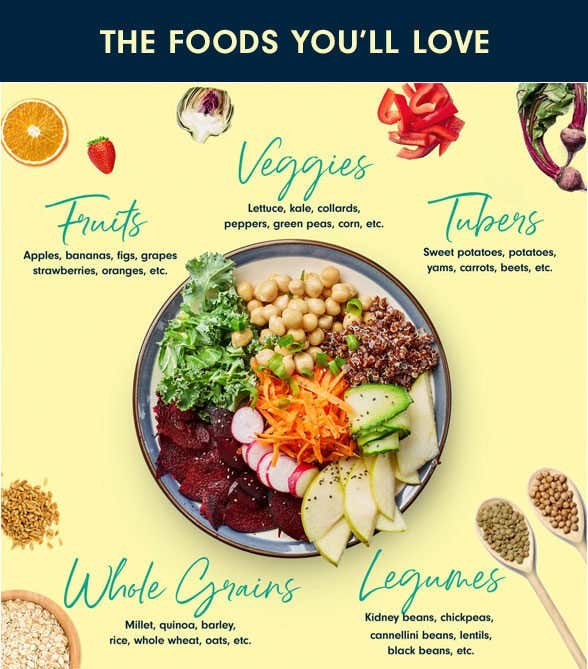Why Sugar Free Sauces Are a Game-Changer for Your Plant-Based Pantry
Why Sugar Free Sauces Are a Game-Changer for Your Plant-Based Pantry
Blog Article
Everything About Healthy Food: Benefits of Checking Out Plant Based Options
The conversation bordering plant-based diet plans has actually gotten considerable interest recently. Numerous individuals are discovering the prospective wellness advantages, nutritional benefits, and environmental impacts associated with these dietary options. As individuals become extra aware of their food's influence on wellness and sustainability, inquiries occur about the usefulness of taking on such a way of living. What specific adjustments can one anticipate, and just how might these choices improve not only individual health and wellness however also the earth's future?
Understanding Plant-Based Diets
Although several individuals link plant-based diet regimens mostly with vegetarianism or veganism, these diet plans can include a large range of eating patterns that prioritize whole, minimally processed plant foods. Such diet plans often consist of fruits, vegetables, entire grains, seeds, nuts, and vegetables, while getting rid of or limiting animal products. This flexibility enables individuals to tailor their dietary options according to nutritional requirements and individual preferences. Some may embrace a largely plant-based diet regimen while still occasionally consuming meat or dairy products, frequently referred to as a flexitarian strategy. The focus continues to be on incorporating more plant foods, which can cause a diverse variety of dishes and flavors. Comprehending these numerous interpretations of plant-based eating is necessary for valuing its ease of access and charm in modern food society.
Wellness Advantages of Plant-Based Foods
The health and wellness benefits of plant-based foods are considerable, using a nutrient thickness benefit that sustains total well-being. Study indicates that these foods can improve heart health and play a vital duty in effective weight management. By incorporating more plant-based options, individuals may enhance their dietary selections and promote long-term wellness.
Nutrient Thickness Benefit
Nutrient density plays a crucial duty in the wellness advantages of plant-based foods, making them an engaging selection for those seeking a well balanced diet regimen. Plant-based foods, such as fruits, veggies, beans, nuts, and entire grains, are usually abundant in crucial vitamins, minerals, and antioxidants while being reduced in calories. This high nutrient thickness enables individuals to eat less calories while still satisfying their nutritional needs. Additionally, these foods are packed with nutritional fiber, promoting digestion health and wellness and aiding in weight monitoring. By including nutrient-dense plant-based choices, consumers can enhance their total health and wellness, sustain their body immune systems, and minimize the risk of persistent illness. Inevitably, the nutrient thickness of plant-based foods emphasizes their significance in a health-conscious way of life.
Heart Health And Wellness Improvement

Weight Administration Support
Along with promoting heart health, a plant-based diet can substantially help in weight monitoring. This nutritional method stresses whole foods such as fruits, veggies, beans, nuts, and entire grains, which are generally reduced in calories and higher in fiber compared to animal-based products. The high fiber web content assists raise satiety, decreasing overall calorie consumption. Plant-based diet regimens are typically abundant in necessary nutrients while reduced in undesirable fats, making it less complicated to maintain a healthy weight. Research shows that individuals who embrace a plant-based way of living tend to have reduced body mass indexes (BMIs) and experience even more successful weight-loss contrasted to those that consume meat-heavy diet plans. Subsequently, embracing plant-based alternatives is a calculated selection for reliable weight management
Nutritional Value of Plant-Based Ingredients
Plant-based ingredients are abundant this website in necessary nutrients, supplying a varied array of vitamins, minerals, and antioxidants that add to overall health. A comparison of protein sources reveals that while animal products are often viewed as superior, numerous plant-based options provide adequate healthy protein and various other valuable substances. Recognizing the dietary value of these components can help individuals make informed nutritional selections.
Crucial Nutrients in Plants
Nutrient-rich active ingredients located in plants use a varied range of important minerals and vitamins that contribute greatly to total wellness. These components are rich in vitamins A, C, and K, which sustain immune feature, vision, and blood clotting, specifically. On top of that, plants supply essential minerals such as potassium, magnesium, and calcium, crucial for heart wellness, muscle mass feature, and bone stamina. The presence of fiber in plant-based foods help digestion and advertises a healthy and balanced gut microbiome. Anti-oxidants, discovered perfectly in fruits and veggies, assistance combat oxidative stress and anxiety and minimize swelling. Several plant foods are low in calories yet high in nutrients, making them a superb option for those looking for to maintain a healthy weight while making certain optimal nutrient consumption.

Comparing Healthy Protein Sources
Protein resources vary substantially in their dietary profiles, with plant-based active ingredients supplying unique benefits. Unlike pet proteins, which commonly include hydrogenated fats and cholesterol, plant proteins often tend to be lower in these undesirable elements. Legumes, nuts, seeds, and whole grains are rich in vital amino acids, fiber, vitamins, and minerals. For instance, lentils supply high protein material together with substantial iron and folate, while quinoa is a full healthy protein, offering all nine necessary amino acids. Additionally, plant-based healthy proteins are frequently come with by anti-oxidants and phytochemicals that support total health. The shift to go to this website plant-based protein resources not just boosts nutritional consumption yet also lines up with sustainable dietary practices, decreasing environmental effect and advertising lasting health advantages.
Environmental Effect of Plant-Based Eating
As recognition of climate modification expands, numerous people are exploring sustainable nutritional selections that can significantly reduce their environmental footprint. Plant-based consuming has actually become a substantial contributor to minimizing greenhouse gas emissions, which are mainly related to livestock production. The growing of fruits, grains, vegetables, and veggies commonly calls for fewer resources, such as water and land, compared to animal farming. Furthermore, plant-based diet regimens can lead to decreased deforestation, as less land is needed for grazing livestock or growing pet feed. By changing in the direction of plant-based alternatives, customers can sustain biodiversity and advertise healthier communities. In general, accepting plant-based consuming not just advantages personal health and wellness however likewise stands for a crucial action toward environmental sustainability and conservation efforts.
Overcoming Common Misconceptions
While numerous individuals recognize the benefits of a plant-based diet, several misunderstandings typically discourage them from completely embracing this lifestyle. A common idea is that plant-based diet regimens do not have adequate protein; however, numerous plant resources, such as vegetables, nuts, and tofu, offer sufficient protein. In addition, some think that this diet regimen is expensive, when actually, staples like beans, rice, and seasonal veggies can be fairly budget-friendly. Another mistaken belief is that plant-based eating is extremely limiting, whereas it really offers a diverse variety of flavors and foods. Many stress that a plant-based diet might lead to deficiencies, yet with correct planning, people can obtain all essential nutrients, including minerals and vitamins, while delighting in a vast variety of scrumptious meals. Large Tips for Transitioning to a Plant-Based Lifestyle
Making the change to a plant-based lifestyle can be an enhancing experience, though it often needs some advice to navigate the first changes. First, people are encouraged to begin progressively, incorporating even more fruits, veggies, legumes, and whole grains right into their dishes while decreasing meat and dairy products intake. Meal preparation is crucial; preparing a weekly menu can help relieve the adjustment and protect against last-minute undesirable options. Checking out cooking methods and new recipes can additionally preserve and enhance the experience enjoyment about plant-based consuming. Additionally, joining support system or neighborhoods can supply inspiration and share beneficial pointers. Remaining educated concerning nourishment warranties well balanced meals, stopping deficiencies while promoting a healthy and balanced, enjoyable plant-based lifestyle.

Delicious Plant-Based Meal Ideas
Discovering delicious plant-based meal concepts can inspire individuals to accept an extra nutritious diet plan. One preferred option is a hearty quinoa salad, including cherry tomatoes, cucumber, and a vibrant lemon-tahini clothing. An additional fave is a savory lentil stew, loaded with carrots, celery, and great smelling herbs, excellent for a comforting dinner. For morning meal, over night oats made with almond milk, chia seeds, and covered with fresh berries provide a healthy begin to the day. In addition, a vibrant vegetable stir-fry with tofu and a range of vibrant veggies can be a quick yet satisfying meal. Creamy avocado toast on whole-grain bread, sprinkled with flavors Get the facts and seeds, provides a basic yet delicious treat. These meals display the selection and richness of plant-based eating.

Often Asked Inquiries
Can a Plant-Based Diet Regimen Provide Enough Healthy Protein?
The concern of whether a plant-based diet can give adequate protein prevails. Many sources, consisting of vegetables, nuts, seeds, and entire grains, can satisfy healthy protein requires effectively, sustaining a balanced and nourishing diet plan for people.
Are Plant-Based Diet Plans Suitable for Children?
The viability of plant-based diet plans for children depends on careful preparation. Adequate nutrients have to be ensured, consisting of minerals, vitamins, and proteins. With correct assistance, such diet regimens can support healthy development and development in kids.
Just how Do I Eat in restaurants on a Plant-Based Diet plan?
Eating in restaurants on a plant-based diet includes looking for restaurants with diverse food selections, asking for adjustments, and discovering vegan-friendly alternatives. Planning ahead and connecting nutritional preferences can enhance the dining experience while preserving dietary options.
What Are Usual Allergens in Plant-Based Foods?
Common allergens in plant-based foods consist of soy, gluten, nuts, and seeds - Plant Based Chicken. Individuals complying with a plant-based diet regimen should be conscious of these allergens and check out tags meticulously to avoid unfavorable reactions and ensure risk-free usage
Can Plant-Based Diets Aid With Weight Loss?
Research indicates that embracing a plant-based diet plan may assist in weight management as a result of its typically lower calorie density and higher fiber content. This combination can enhance satiation, aiding people handle their calorie intake efficiently. Numerous people associate plant-based diets mainly with vegetarianism or veganism, these diets can incorporate a vast array of consuming patterns that prioritize whole, minimally processed plant foods. Nutrient thickness plays a crucial duty in the health and wellness advantages of plant-based foods, making them a compelling choice for those looking for a well balanced diet plan. Plant-based diet plans have been revealed to substantially boost heart wellness, as they commonly include elements that sustain cardio function. In enhancement to advertising heart health and wellness, a plant-based diet can substantially help in weight management. A common idea is that plant-based diets do not have adequate protein; nonetheless, many plant sources, such as beans, nuts, and tofu, offer sufficient healthy protein.
Report this page